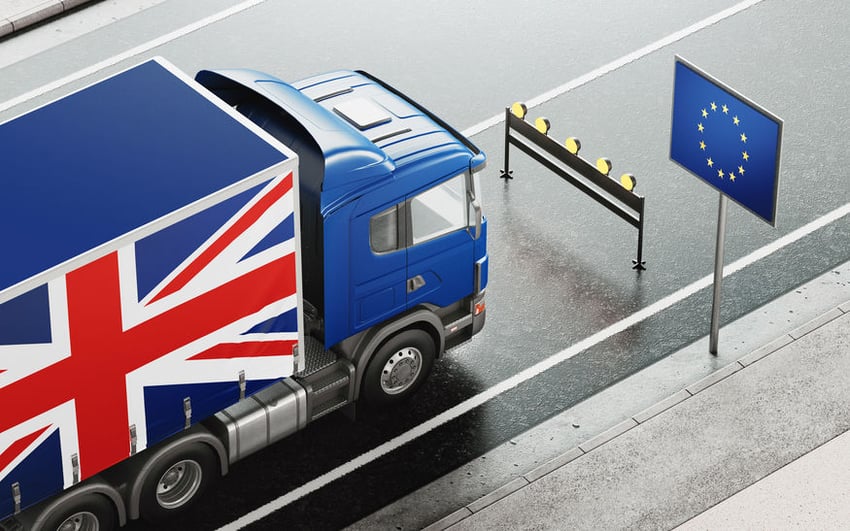News
The biggest Brexit challenges (and how to solve them)
Stephen Bruton |
As of January 1, 2021, the United Kingdom (UK) is no longer a European Union (EU) member. Companies on both sides of the Channel that were accustomed to the Single Market now operate in a system governed by a 1,246-page trade and cooperation agreement. Even the best-prepared companies are being surprised by some of the obstacles they are encountering.
Logistics
It was always clear that Brexit would be a complicated situation for many companies. Some issues will prove to be short-term problems as businesses adapt over the coming months, but supply chains have already been irrevocably changed and many changes are here to stay. For the time being, the days of delivering a product from the UK to mainland Europe (and vice versa) within 1-2 days with minimal administration or red tape are over. The exact changes will depend on the specific nature of each business, but one constant is that significant paperwork is required to import and export goods. This is catching traders out – even well-run companies that put a lot of resources into preparing for Brexit. For example, there are examples of British companies having to leave goods on the roadside in the Netherlands while they scramble to find a solution within the new legal framework. There may be significant additional administrative hassle involved until these issues are resolved.Customs
Many stories on the evening news focus on issues with Customs. For example, a consumer in the Netherlands might order an item of clothing from a UK retailer, only to find that they now have to pay an additional fee for it to be released by Dutch Customs. While this can disrupt supply chains and eat into a company’s margins, the right advisor can help plan for this. A broader issue is when a company tries to import or export a product and their paperwork gets rejected by someone at the border, usually because the goods do not fit a specific rule. There have been many cases in which the Brexit agreement does not apply to the goods because they had a different origin, such as China or Vietnam, before being handled in the UK and shipped on to the EU. Physical goods being sold in the European Union are expected to have an EU presence. The Netherlands and Belgium are excellent options: ports such as Rotterdam and Antwerp are big enough to process the cargo of the biggest ships embarking from the US and China and offer excellent onward connections to European markets.How to navigate the difficult waters
For UK companies looking to serve European customers, a favoured solution is to engage a local logistics partner and distribute the goods from a hub within the EU. To make this process run as smoothly as possible, it pays to appoint a local VAT representative in your chosen market to handle all your VAT affairs, known as a “mini one-stop shop”. For some companies, however, this will not be possible because they have so many different aspects to consider. A UK company that sells products in France and Bulgaria may now need to file and pay VAT in all three countries. Many companies will simply abandon those markets because the costs will eat into their margins or they may not do enough business there to justify the costs. In this case, one option is to create a physical presence in the EU by setting up a warehouse and/or a proxy company. This can, in turn, open doors to new opportunities, such as hiring a sales person in Germany or the Netherlands to get you closer to your clients or creating a footprint from a tax and legal perspective that can be used to invoice clients. Many forward-thinking companies have already done this. When done well, it can help turn a negative starting position into a positive one and help companies grow their business on an international scale.Expert support when you need it
Brexit presents companies on both sides of the water with challenges as well as opportunities. In either case, there is no substitute for having the right team behind you. At Bol International, we provide a one-stop shop for all your business needs. Whether you are a UK company selling products to the European market or vice versa, we can look at your situation and work with you and/or your advisors to help you weigh your options. We can help you to quickly set up a smooth-running operation in the Netherlands. Alternatively, we can leverage our world-class LEA Global network to help you find the right advisors and partners in your chosen market. As well as a full-service offering, we also provide the kind of personal attention you may not find from the bigger advisors. Our large team can cover everything you need and create synergies that result in cost savings for you. Our services include legal, tax, bookkeeping and VAT advice and services, but also extras such as employment law and payroll services – which can be especially useful for companies wanting a physical presence in the Netherlands. Just get in touch and let us handle the rest.
Tags

Stephen Bruton


